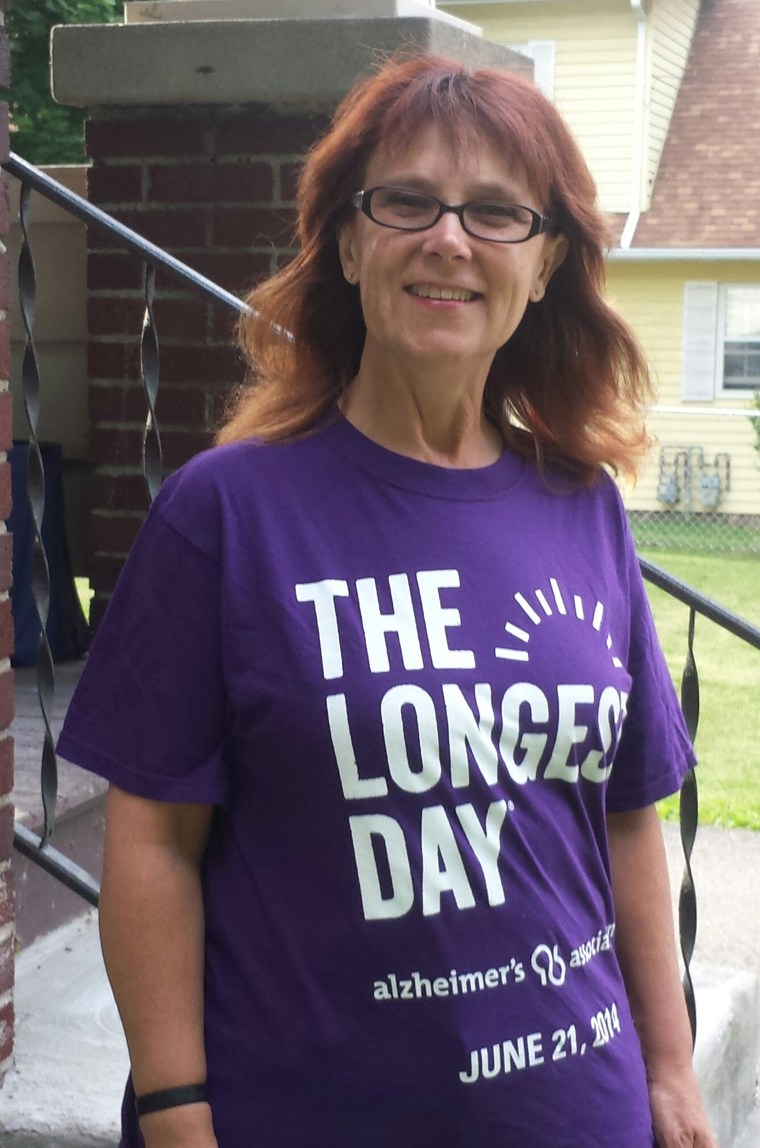Researchers have found a small piece of good news for people at high risk of some kinds of dementia: it might be possible to delay it or even prevent it.
They found falling rates of vascular dementia in people who also happened to improve their heart health. The findings, published in the New England Journal of Medicine, support the idea that what’s good for the heart is good for the head.
"Our study offers cautious hope that some cases of dementia might be preventable or at least delayed," Claudia Satizabal of the Boston University Schools of Medicine and colleagues wrote in their report.
They looked at more than 5,000 people who have been having their health tracked in minute detail as part of the Framingham Heart Study. The multi-generational study has been going on since 1948 and in 1971 children of the original volunteers signed up. Their memory has been tested since 1975.
"On average, since 1977, there has been a decline in the incidence of dementia of 20 percent per decade," the researchers wrote. The decrease in rates of vascular dementia has been 29 percent per decade.
"The decline in the incidence of Alzheimer’s disease was not significant, whereas the decline in the incidence of vascular dementia appeared to be more rapid than that of Alzheimer’s disease," they added.
“Our study offers cautious hope that some cases of dementia might be preventable or at least delayed."
Keith Fargo, director of scientific programs for the Alzheimer's Association welcomed the findings.
"The incidence rates for dementia in the Framingham heart study appear to be decreasing over the past few decades and that's good news. It's probably not everything that needs to be done, but it's good news and it points us in a couple of directions about what we might be able to do to decrease the risk for dementia as people age," Fargo told NBC News.
"We know that things like increasing your physical activity, eating a heart-healthy diet, making sure that you stay socially active, making sure that you stay cognitively engaged, if you smoke, stop smoking — all of these things are going to reduce your likelihood of cognitive decline as you age and may even delay or prevent dementia," Fargo said.
Related: Here's a Recipe for Preventing Dementia
But the news only applies to the mostly white people taking part in the study. A second study found dementia rates are highest in African Americans and lowest in Asian Americans.
And the Boston team’s findings only applied to people with a high school education or more. That supports other research that shows education can protect against dementia, probably by keeping the brain active and growing.
Vascular dementia is the second most common cause of dementia after Alzheimer’s disease.
One person who’s doing her best to stave off dementia is Cynthia Huling Hummel, a retired pastor in Elmira, New York. She was diagnosed with mild cognitive impairment, which can progress to Alzheimer’s, in 2011.

"I was preparing for my doctorate, I was preparing to defend my dissertation and I couldn't remember any of the classes I had been taking," Hummel, who is 61, told NBC News.
"I couldn’t remember the material I had read. I couldn’t remember the teachers or the students I had interfaced with so I knew there was a problem," she added.
"It’s frustrating. It’s embarrassing. By Wednesday I would forget what I had preached on Sunday," she said.
Hummel retired, but she got busy trying to do what she could to prevent the dementia from worsening.
"Getting more physically active, engaging myself more socially, challenging myself with more learning opportunities, being mindful of what I was eating, all those things," she said.
"I take classes at Elmira College. I’m now taking my 28th class in almost 4 ½ years," Hummel added.
"You want to pump that blood and stay physically active and again, what is good for the heart is good for the brain and so I swim three times a week at the Y."
“You want to pump that blood and stay physically active."
It appears to be working.
"I went to see my neurologist last month and he said, 'Whatever you’re doing continue to do it because it’s working.' And so that is good news," she said.
More than 5 million Americans have Alzheimer's disease. The Alzheimer's Association says more than 28 million baby boomers will develop the disease between now and 2050, and the cost of caring for them will consume nearly 25 percent of Medicare spending in 2040. It's worse in women.
A second study looked at just who gets dementia.
Dementia rates in African Americans are 65 percent higher than among Asian Americans, the study found.
"Our projections indicate that in every racial and ethnic group, over one in four people who survive to age 65 can expect to be diagnosed with dementia in their lifetime," said Rachel Whitmer, an epidemiologist at Kaiser Permanente Northern California, who led the study published in an Alzheimer's Association journal.
Her team’s study of 274,000 members of Kaiser Permanente found dementia incidence over the 14-year study period ranged from an average annual rate of 26.6 cases of dementia per 1,000 people for African-Americans, to 15.2 cases per 1,000 people for Asian-Americans. In between were Latinos and Pacific Islanders with an average annual rate of 19.6 cases per 1,000 people, and whites with 19.3 per 1,000.
Various studies have given people hints at what can prevent Alzheimer’s. Regular exercise and eating plenty of fruits and vegetables helps.
Others have shown that people who are socially engaged are less likely to develop memory loss. Still others have shown that keeping the brain active with puzzles or games can help, and a whole industry has arisen out of that research.
